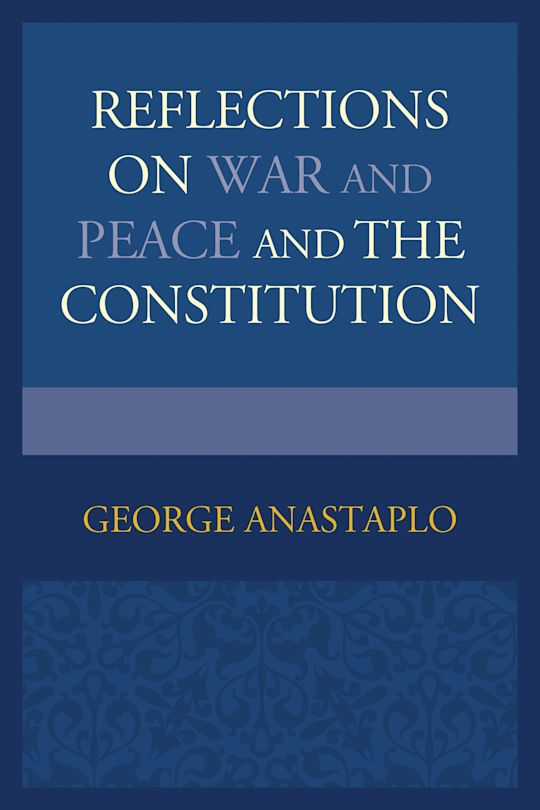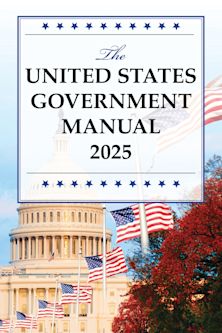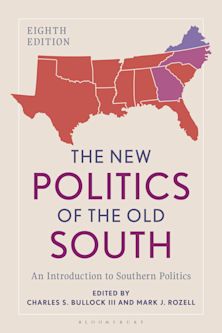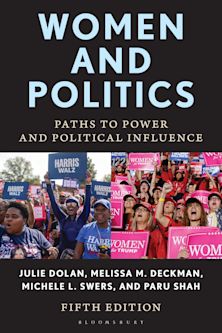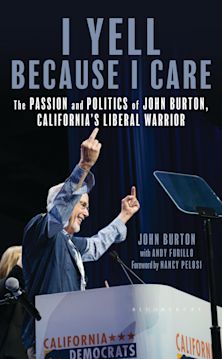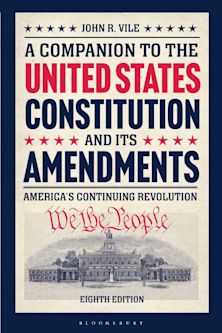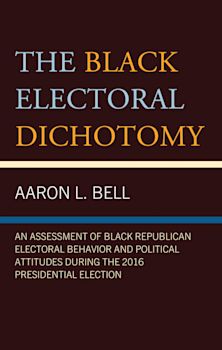- Home
- ACADEMIC
- Politics & International Relations
- American Government and Politics
- Reflections on War and Peace and the Constitution
Reflections on War and Peace and the Constitution
You must sign in to add this item to your wishlist. Please sign in or create an account
Description
The attitudes and assumptions of different cultures and historical periods toward war and the maintenance of peace are reviewed by recalling authors who include Euripides, Sophocles, Plato, Cervantes, Shakespeare, Hobbes, and Zola. The challenges of war, peace, and national security for and by Americans are examined, and documents such as the Declaration of Independence and the Constitution of 1787. The lives and thought of eminent Americans are also recalled (including George Washington, Thomas Jefferson, Abraham Lincoln, and Franklin Roosevelt), as well as the challenges posed by incidents such as the Dreyfus Affair and monstrosities such as the Second World War Holocaust. The Appendixes reinforce these inquiries by providing critical documents in American history and interviews with a Holocaust survivor.
Table of Contents
War & Peace in the BibleWho Were the Greeks—and Why Do They Matter?Sedition in Wartime: Thersites and the Trojan WarJustice and Nobility: The Problem of AntigoneWar & Peace and Socratic ConstitutionalismOn Law For and Among PeoplesOn the Projection of Force to the Other Side of the WorldVictory, Defeat, and National MoraleWilliam Shakespeare and the Uncomfortable Facts of WarWar & Peace and the Declaration of IndependenceThe War Power and the ConstitutionThe Organic Laws of the United StatesOn Deliberation and WarPart Two
The Separation of PowersThe Risks and Rewards of Civil WarThe Dreyfus Affair and the War PowerThe Great War—A Monumental FollyWoodrow Wilson and His Fourteen PointsOn the Defense of the Allied Policy for Bombing German Cities (1944–1945)
The Presidency, Especially in Time of WarCongress, the President and the Constitution in WartimeSeptember Eleventh: On Diagnosing an AddictionThe Prospects and Perils of Homeland SecurityFreedom of Speech in “Wartime”Fearfulness and the Search for an Elusive “Security” Philosophy and the Prospects at DeathAppendices
A.The Declaration of Independence (1776)
B.The United States Constitution (1787)
C.The Amendments to the United States Constitution (1791–1992)
Introduction to Appendixes D, E, and F
D.Glory! Glory! Hallelujah!
E.Are You Listening?
F.I Can’t Figure It Out to This Day
Product details
| Published | Oct 21 2014 |
|---|---|
| Format | Ebook (Epub & Mobi) |
| Edition | 1st |
| Extent | 334 |
| ISBN | 9780739193280 |
| Imprint | Lexington Books |
| Publisher | Bloomsbury Publishing |
About the contributors
Reviews
-
The crown jewels of American politics rests in the United States Constitution. Following the tradition of such formidable scholars as Alexander Meiklejohn, Harry Kalven, W. W. Crosskey, and Philip Kurland, and drawing heavily on great thinkers from Homer to Aristotle and from Hobbes to Kojève and Strauss, George Anastaplo in his Reflections series discloses the many riches of our founding document (and of the great books). He discovers new treasures and thrusts old nuggets of wisdom into a fascinating, novel light. This volume is a gold mine for explorers into the meaning of prudence regarding war and peace.
J. Harvey Lomax, University of Memphis
-
This culminating volume of a final series of essays is in many ways the culmination of George Anastaplo’s life’s work. The relevance of the Greek example to the quandaries of our present wars, including the Iraq war, is clearer than ever here, and the plea for reason in moments of passion is stronger than ever. On Sir Christopher Wren’s tomb in St. Paul’s, one of his greatest designs, is a plaque that simply says, Si monumentum requires, circumspice—If you seek a monument, look around you. This book says that about George Anastaplo’s entire life, and also about our own need to rethink our involvement in war and peace and the Constitution.
Wendy Doniger, University of Chicago








